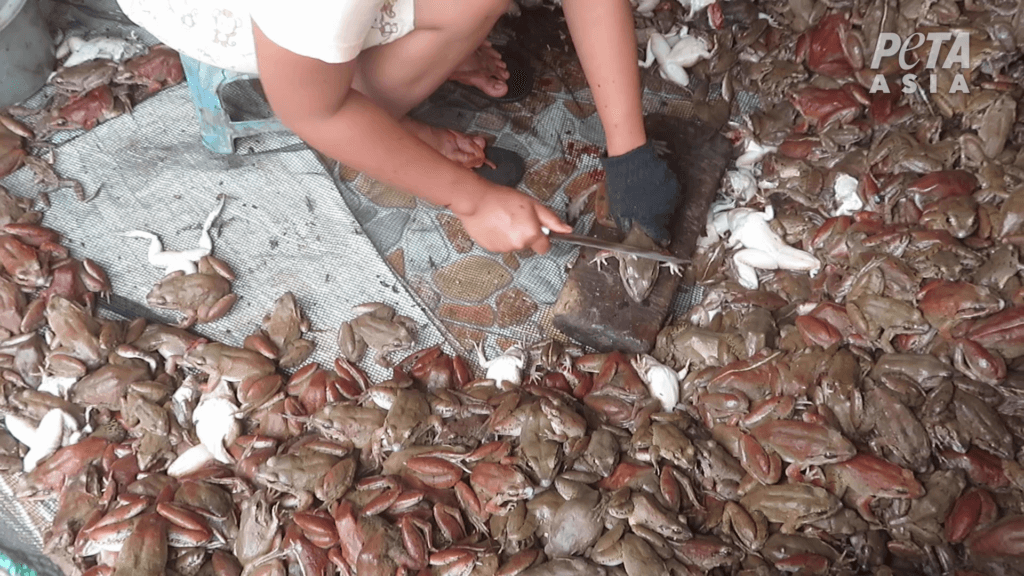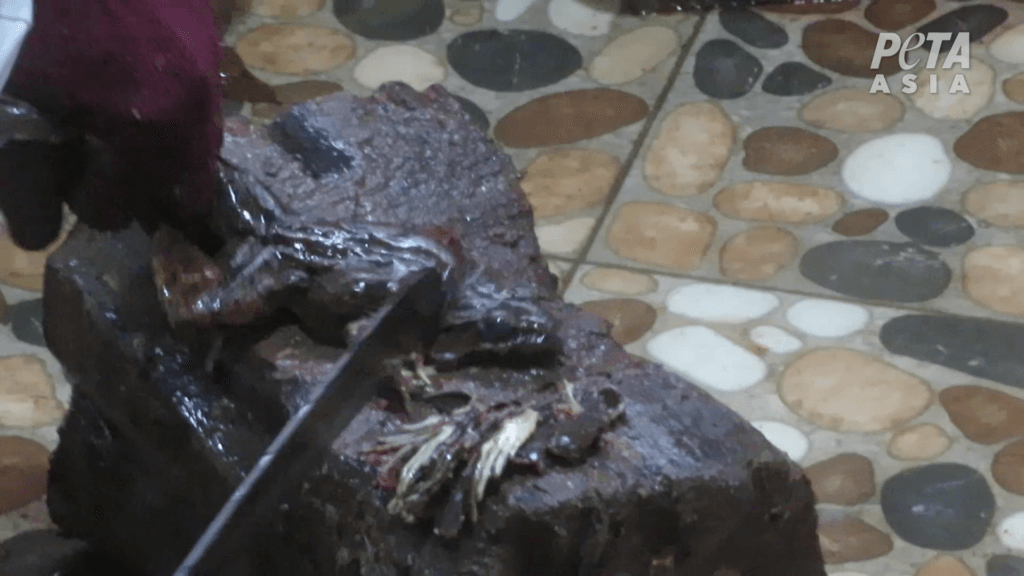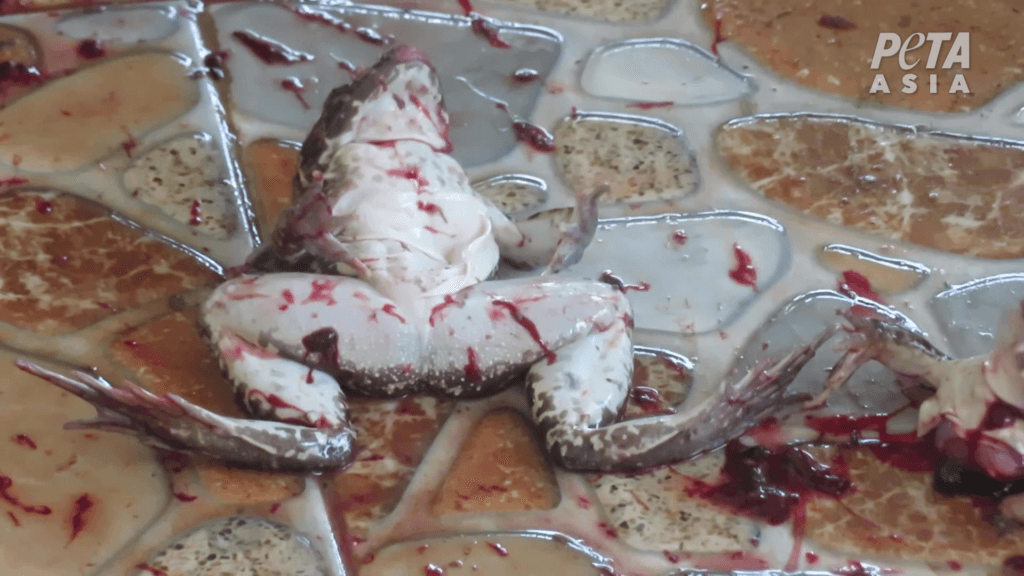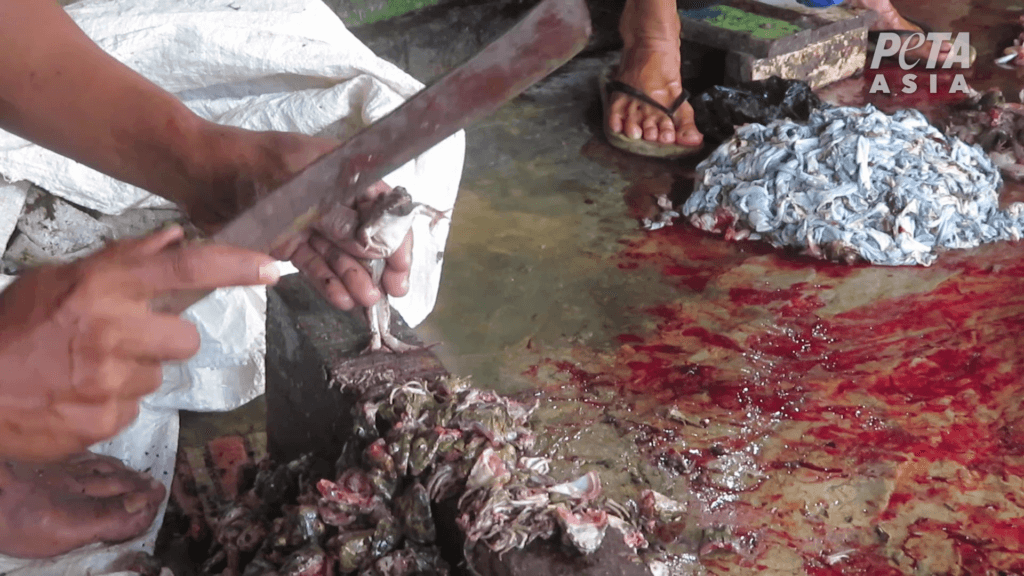Global Supermarket Brand Drops Frog Legs After Chilling PETA Exposé
Update: (May 16, 2024): A leap forward for frogs—following PETA Asia’s investigation into the frog-leg industry, which revealed how workers capture and kill frogs in Indonesia so that their legs can be sold and eaten around the world, global supermarket giant Carrefour has committed to cutting ties with a supplier and ending its sale of frog legs from the country. This decision came after more than 90,000 people took action for frogs by joining PETA entities around the world in writing to Carrefour Group.
We celebrate that the company has taken action for frogs who are captured in the wild, confined to severely crowded bags, and slaughtered—some while still conscious. Please, never buy or consume frog legs—and contact any restaurant you come across serving them, anywhere in the world, to ask that they remove them from the menu.
PETA Asia investigators unearthed vicious cruelty at numerous frog-leg suppliers in Indonesia, the world’s largest exporter of frogs’ legs. If you see frog legs on a menu, think about this:
From extremely crowded sacks of suffocating frogs to agonizing killing methods, PETA Asia’s findings show how frogs suffer before reaching people’s plates in Europe and elsewhere.
Frogs are known for their webbed feet and exceptional leaps, but these fascinating, sensitive animals have many other notable characteristics. Many frog species are devoted—and resourceful—parents and have a variety of personalities ranging from bold or guarded to relaxed or peaceful.
Just like humans, frogs feel pain and fear. They don’t want to be taken from their homes and killed, yet nearly 322 tons of frog legs were shipped from Indonesia to the European Union from March to May of this year. PETA is calling on everyone to stop eating frog legs—or anything else taken from an animal.
PETA Entity Investigations Expose Cruelty to Frogs
A PETA Asia video exposé documented that workers take frogs from nature and stuff them into extremely crowded sacks—in which they may be kept for two agonizing days, causing many of them to asphyxiate and die.
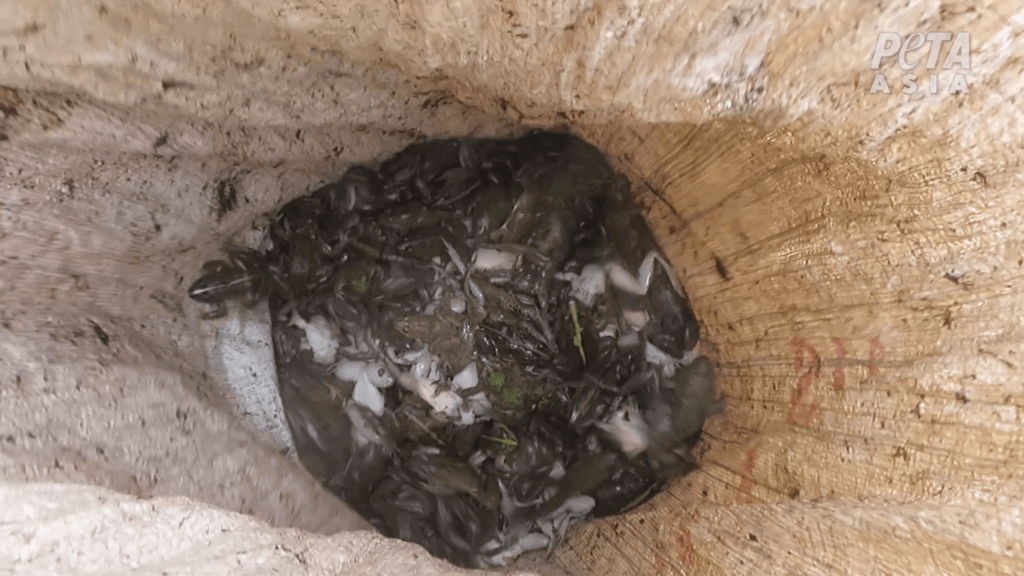
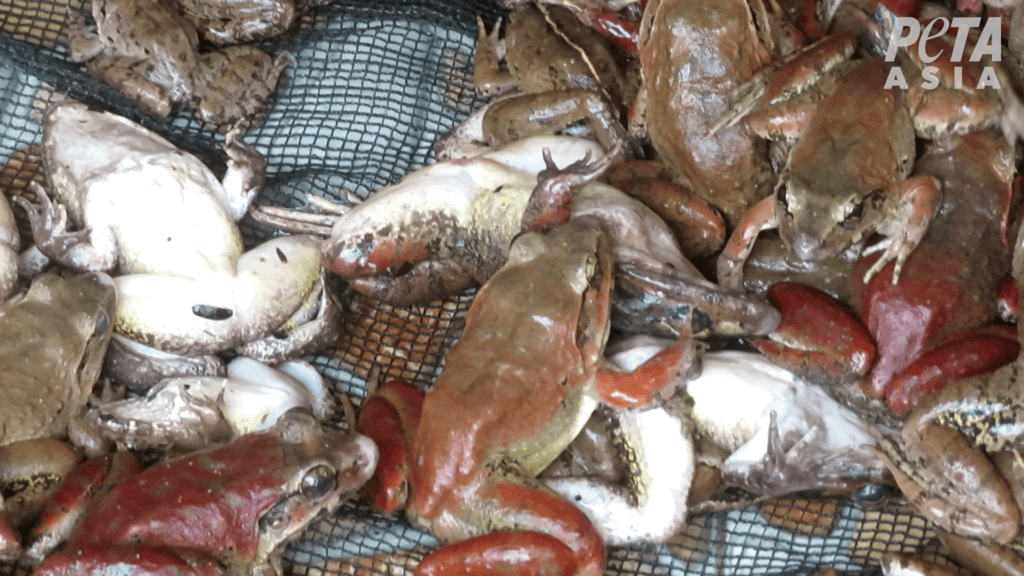
The video shows an employee slamming live frogs onto the ground while sorting living and dead ones. Workers used knives to hack at frogs’ heads and feet. Some of the animals’ heads were completely severed, while others were only partially cut off. Some workers also cut frogs’ feet before hacking at their heads.
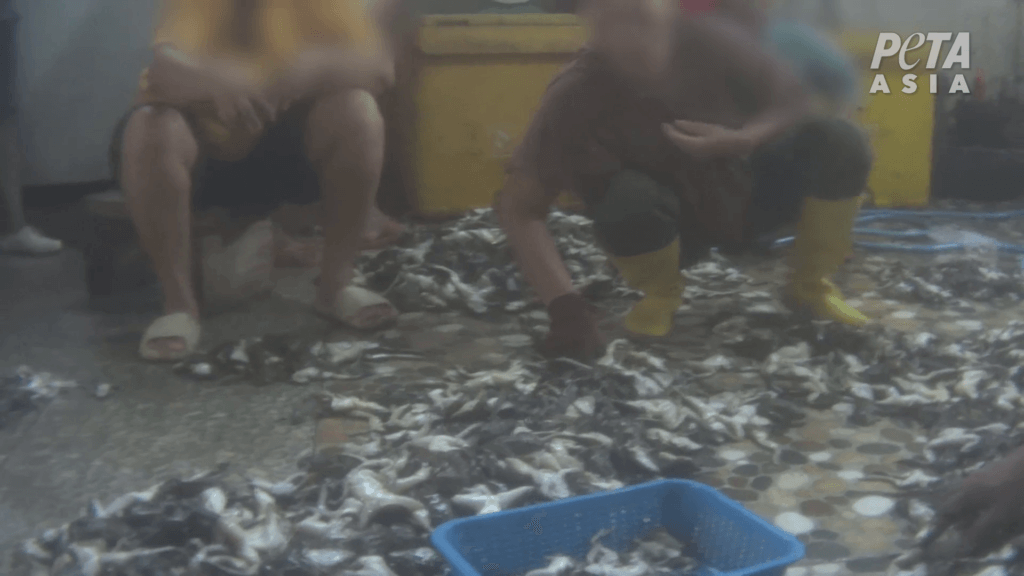

Many frogs were still alive and moving when workers tore away their skin. Investigators documented that frogs’ mouths opened and closed after decapitation and that their headless bodies moved for minutes after they were slaughtered.
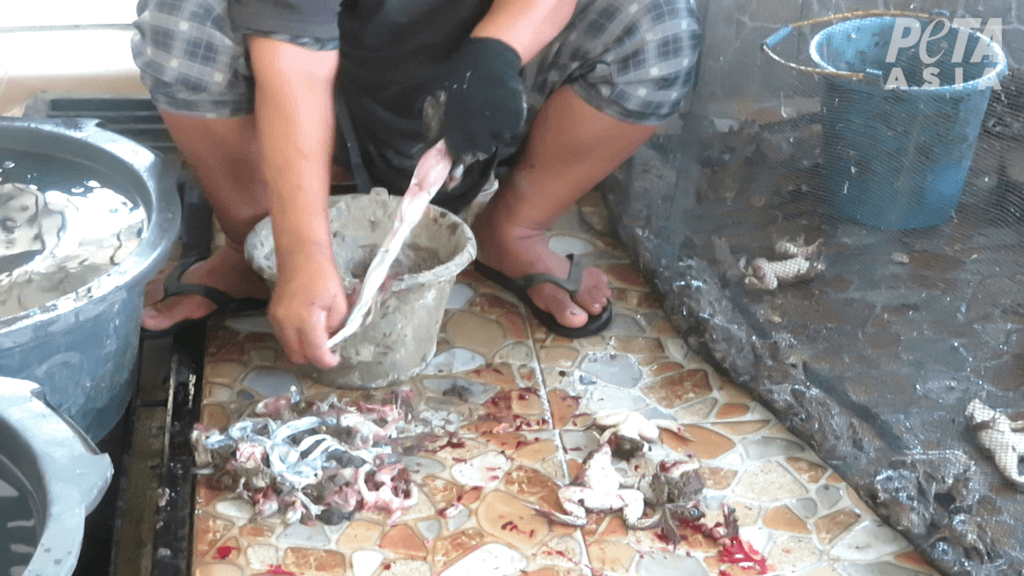
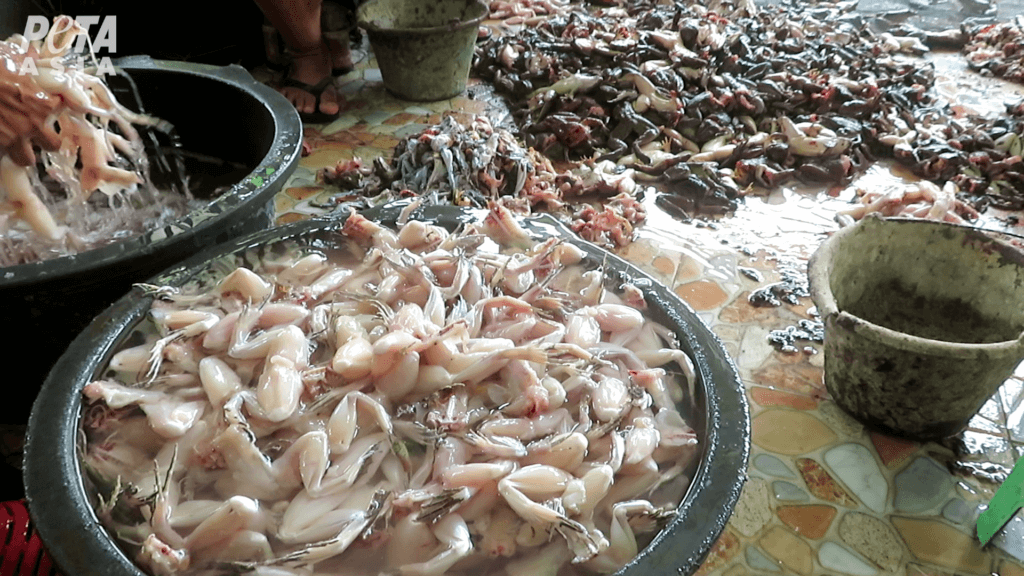
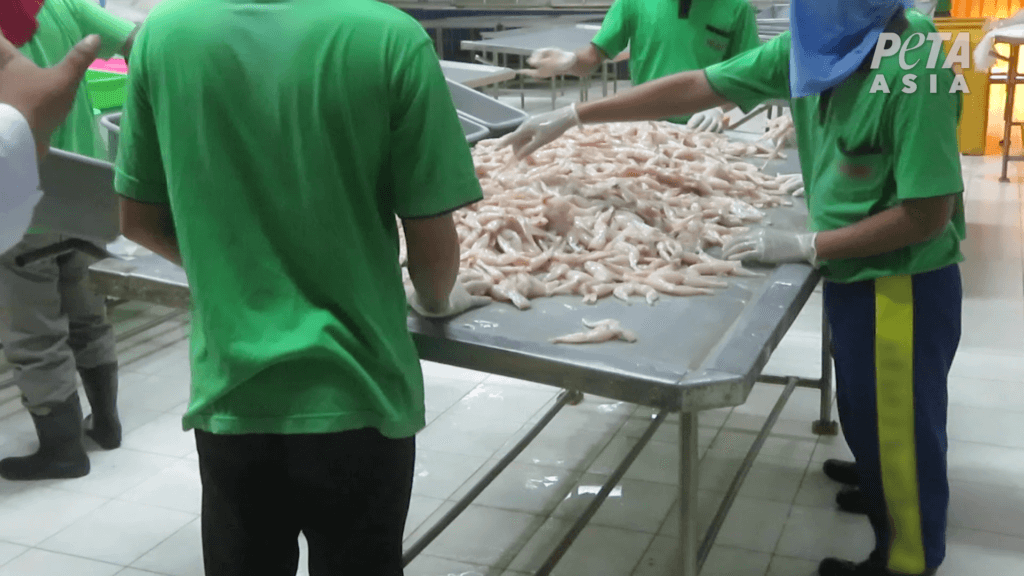
This hell for frogs isn’t isolated, as PETA Asia investigators documented egregious cruelty to frogs in every randomly selected facility they visited in Indonesia.
Environmental Implications of Frog Legs
The consequences of this industry go beyond the cruelty inflicted on frogs. Various sources have shown that frog populations in Indonesia have declined in recent decades. According to the International Union for Conservation of Nature’s Red List of Threatened Species, populations of the fanged river frog and the crab-eating frog are decreasing. Frogs are considered by conservationists to be a keystone and an indicator species, meaning that they’re integral to a healthy, functioning ecosystem and that their decline is a sign of ecological problems.
If this trend continues, problems stemming from ecological imbalance—such as an increased use of pesticides by farmers because there are no natural predators for insects—will inevitably develop.
Of the two species of frogs captured by workers in the video, only one is on the Ministry of Environment and Forestry’s list of species permitted to be caught in nature. This restriction is likely why frog legs are often mislabeled for export.
Many frogs are protective parents who nurture their young, and these sensitive animals feel pain and fear just like chickens, pigs, and other animals. Frogs don’t exist for humans, and eating their body parts for our pleasure is speciesist.
Whether for a frog’s leg, a chicken’s thigh, or a pig’s hind leg, the cruelty and suffering involved in slaughtering the animals for human consumption are the same.
Labels That Lie: Are You Eating Endangered Species?
Indonesian suppliers deliberately mislabel and sell two species of frogs—Limnonectes macrodon and Fejervarya cancrivora—as Fejervarya cancrivora, even though suppliers that sell these animals to distributors overseas admit that mislabeling is a regular occurrence and that they can distinguish between the species when packing them.
Violations of Laws
The frog-leg industry appears to be breaking Indonesian laws. Article 66(1) of Indonesian Law No. 18 of 2009 requires that measures be taken concerning animal well-being during capture, husbandry, slaughter, and transport. Additionally, Article 66(2) requires that animals generally be free from pain, fear, or pressure. Yet these facilities operate with callous disregard for the frogs’ pain and suffering and brazenly ignore these laws.
